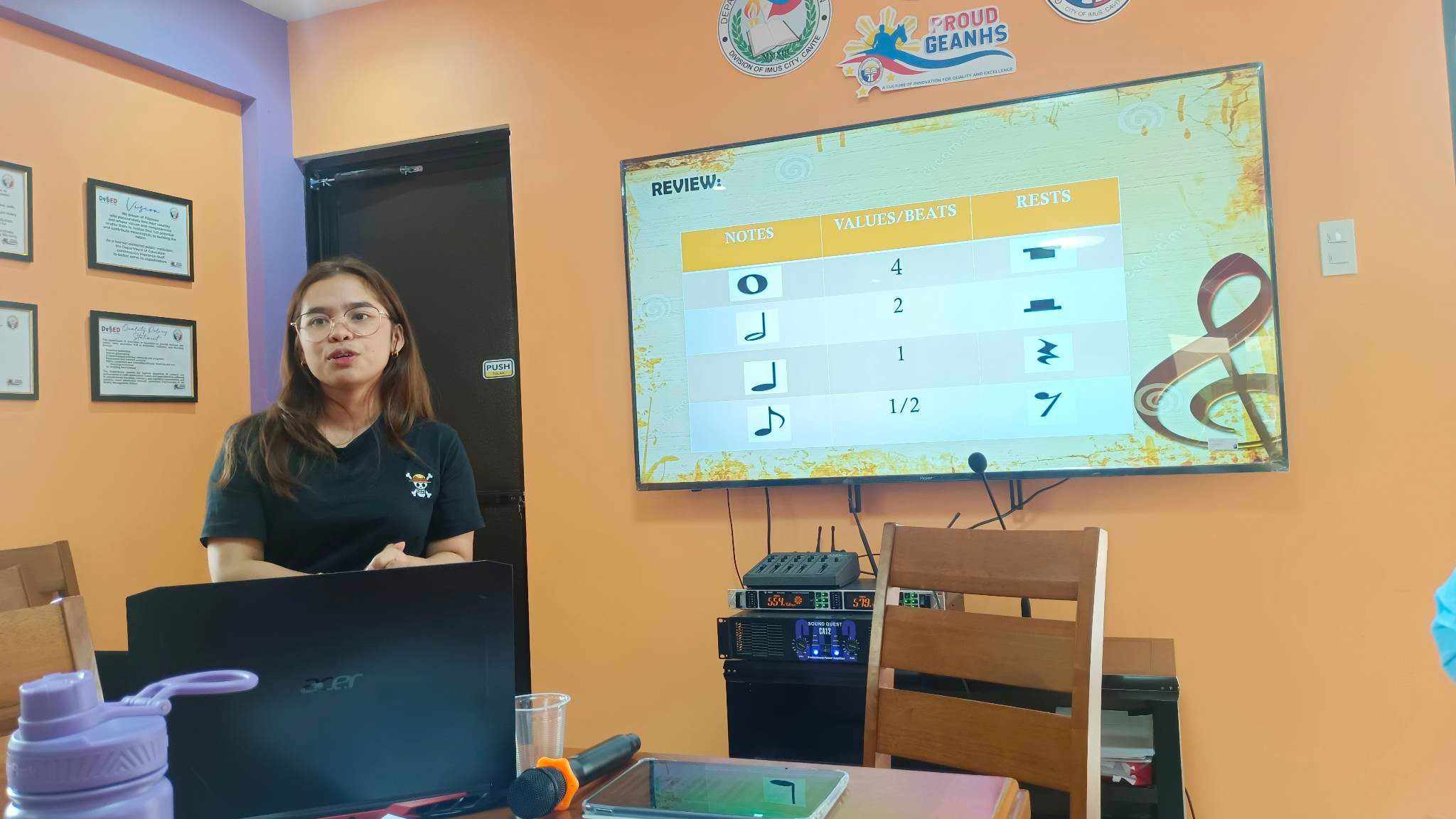
DEDICATION TO CUSTOMER SERVICE. Erwin Ogsemer, 29, takes a short break on his night duty as a food delivery rider in Dasmariñas, Cavite in this undated photo. Ogsemer underscores the need for dedication to ensure quality service despite challenges in the rainy season, Covid-19 pandemic risks and even dealing with difficult customers. (Photo courtesy of Erwin Ogsemer)
MANILA – The digital age has contributed to easing various lifestyles just by clicking devices for services and learning, all the more with the changes brought by the coronavirus disease 2019 (Covid-19) pandemic.
This luxury of convenience for some, however, is not attained just by tapping hand-held gadgets.
Real people, who may be considered as modern day heroes, are actually behind such services which provide much ease to the public, just like the 29-year-old food delivery rider Erwin Ogsemer from Dasmariñas, Cavite, who has been working in the industry for four years now.
Ogsemer said he entered the field before the height of the pandemic.
"Flexible kasi ang kita sa delivery, binabayaran 'yung sipag ko (The income in delivery is flexible, I'm being paid for my hard work)," he told the Philippine News Agency.
He said that working on roads even during the rainy season is considered a typical feat for a food deliveryman like him.
"'Yung bagyo parang normal na lang samin. Pero 'yung mga customer na hindi maintindihan kung bakit kami nahihirapan kapag naulan, 'yun ang pinakaproblema (The storms seem to be normal for us. But customers who cannot understand the challenges we have to face during bad weather is the problem for us)," he added.
Even with good weather, Ogsemer cited being disheartened by how some customers forget to show courtesy, recalling an instance when he needed to deliver a 50-kilogram lechon to an event in Taguig City.
"Bitbit ko 'yung lechon na weight 50 kilos, walang tumulong sa'kin... sobrang bigat nung 50 kilos na 'yun, pero kahit thank you wala man lang akong na-receive sa kanila. Sobrang frustrated ako nun kasi di magkaintindihan kung nakabayad na ba (I brought a lechon weighing 50 kilograms, nobody helped me... That's very heavy, 50 kilograms. But I haven't heard even a 'thank you' from them. I was more frustrated because there was confusion on the payment)," he said.
"Parang ang tingin kasi pag nagde-deliver ka e nabayaran ka na parang tipong kailangan gawin mo 'yun (It seems like as if when you're delivering, they look to you as someone whom they paid to do [what they wanted])," he added.
Amid all these challenges, Ogsemer still chose to highlight the fulfilling part of his job on the streets, especially during the peak of coronavirus disease 2019 (Covid-19) infection in the country even as he recalled being seen as someone "infected" due to the nature of work.
"Nagkaroon ako ng customer na Covid patient, tapos nakita ko siya parang nasa loob siya ng isang container truck doon sa ospital ng General Trias... Limited lang, mayroon lang lalapit sa amin na siya 'yung magre-receive ng pagkain at magbibigay dun sa customer (I had a Covid-19 patient customer. I saw the customer in a container truck in a hospital in General Trias [Cavite]... [The mobility was] limited... There was a receiver of our food delivery who would give it to the customer)," he said.
Ogsemer disclosed the challenging risk of spending hours to ensure the delivery of products, alongside bringing empathy in customer service.
"Gugugol kami ng ilang oras para dun sa customer na 'yun kasi iniisip namin na baka 'yun lang talaga 'yung pagkain na kaya o pwede nilang kainin that time. Kaya kailangan 'yung dedication mo sa trabaho is nandun nung pandemic (We would spend hours for that customer, thinking that's the only food they can or they should eat that time. That's why your dedication to work is really needed during the peak of pandemic)," he recalled.
Besides ensuring quality services to those hit by the disease, Ogsemer underscored how children make him feel more rewarded.
"Pinakamasaya 'yung mga batang sumasalubong samin kapag nakikita nila 'yung order nila at sobrang saya nilang nagpapasalamat pauli-ulit samin (I am happiest when kids approach us upon seeing their order, with great delight expressing their gratitude again and again)," he said.
Ogsemer plans to continue working as a food delivery rider to bring quality service to his customers while providing food for his family's table.
Distance learning
Leonor Madali, 25, a teacher for two years in Imus, Cavite, meanwhile, shared the challenges to secure effective learning delivery outcomes through the distance setup during the pandemic peak.
Teaching for a year in the private school, Madali said the main objective was to cater to all the needs and interests of diverse learners from Grades 3 to 6 through their screens.
"Due to the situation, our activities were limited to the online setting only. It is also challenging for us to check the learning growth of the learners. It would have been better to see it personally," she told the PNA.
Besides the struggle of assessing learners' understanding, Madali said proper classroom management is also a matter to be gauged.
"It was hard to implement the proper classroom management. It was a trial and error phase to see which will be effective in the new classroom setting," she said.
Madali shared how hard it was to sustain the attention span of children in their screen time schedules.
She said going the extra mile to reach out to the kids' parents is not much more of a deal to fill the gaps of distance learning.
"There were situations where they became unmanageable but those were mostly handled smoothly with the help and guidance of their parents," Madali said.
But these hardships are easily taken away by what she described as "rewarding remarks and attitude" from her learners.
"It is fulfilling to see their excitement every day, their eagerness to participate in every activity, their desire to learn new things, and whenever they say ‘thank you for your help teacher, I've learned a lot’," Madali said.
And as she transitioned to the face-to-face setup upon entering the public school, Madali admitted it was a better setup for learners.

She urged learners, whether in-person or via screens, to continue persevering despite the learning hardships encountered while the country is recovering.
"Whatever challenges you may have faced and still be facing, bear in mind that these are part of our growth, these are part of the process. Pray, have faith, and ask wisdom from the Lord, and success will come after," she said.
The administration earlier assured to continue pushing for reviews and reforms to improve the quality of basic education in the country, alongside addressing the learning loss brought by the Covid-19 pandemic setting. (PNA)
